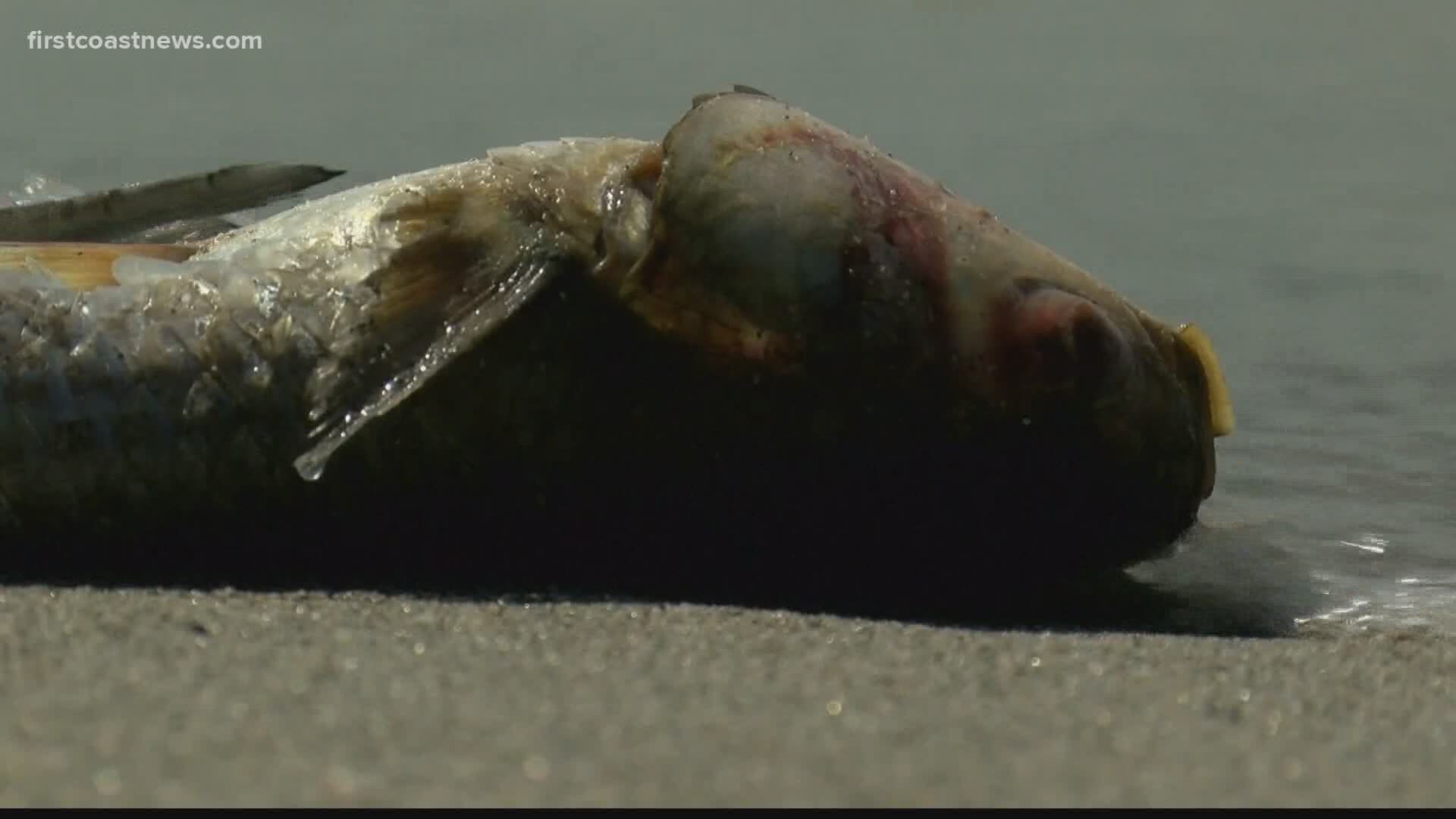JACKSONVILLE BEACH, Fla — Beaches are looking beautiful across Florida for Memorial Day, but not too long ago, they were plagued by red tide.
Red tide is a burst of algae growth in the ocean that can kill marine wildlife and negatively affect humans. It was reported to be the worst red tide in nearly a decade and former Florida Gov. Rick Scott declared a state of emergency because of the issue.
You'll probably recognize red tide by the photos of dead fish along the coast.
It's obvious that beautiful beaches mean good business and red tide can negatively effect the economy, but by how much? A group of University of Florida researchers want to find out the real data.
"I think anyone who lives in Florida or lives in another state or area in the world who is impacted by these events – it’s not 'if I don’t go to the beach during an event then I’m fine. It doesn’t impact me,'" Director of the Economic Impact Analysis Program Christa Court says. "A lot of the tourism revenues are revenues of the state. The tax dollars.”
A nearly $280,000 federal grant will fund the two-year study of the economic impact of the 2017 to 2019 red tide on the state of Florida.
Court says they want to find the real numbers to show community and state leaders.
“It’s really all about trying to quantify what we know," Court says. "We know the economy is impacted by these events but we really want to provide an accurate and informative quantification of those impacts so we can make better decisions."
Court says industries are devastated during a harmful algal bloom.
"Nobody is hiring a fishing charter or coming to hotels when you can see photos on the media of dead fish on the beach," she says.
She says they'll collect information from secondary data, surveys, and in person interviews. COVID-19 should only affect the in-person interview portion of the study. Court says some may have to be postponed.
She hopes the results can help communities prevent or moderate red tide events. The study is set to take two years and then the results will be made public.

